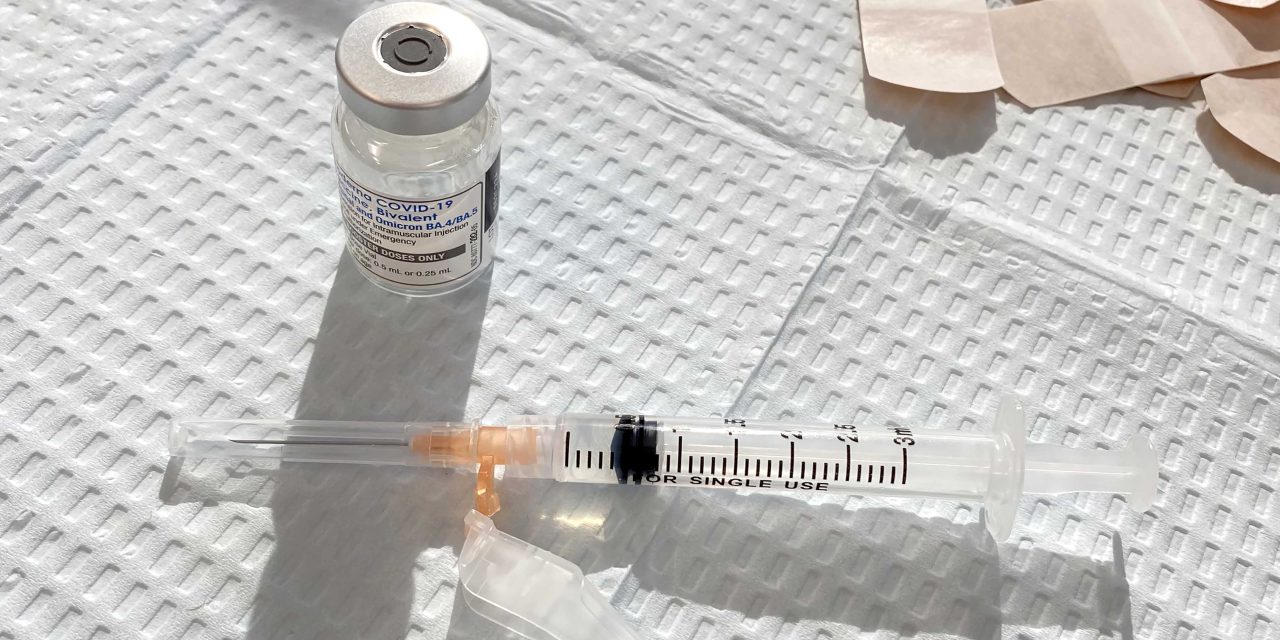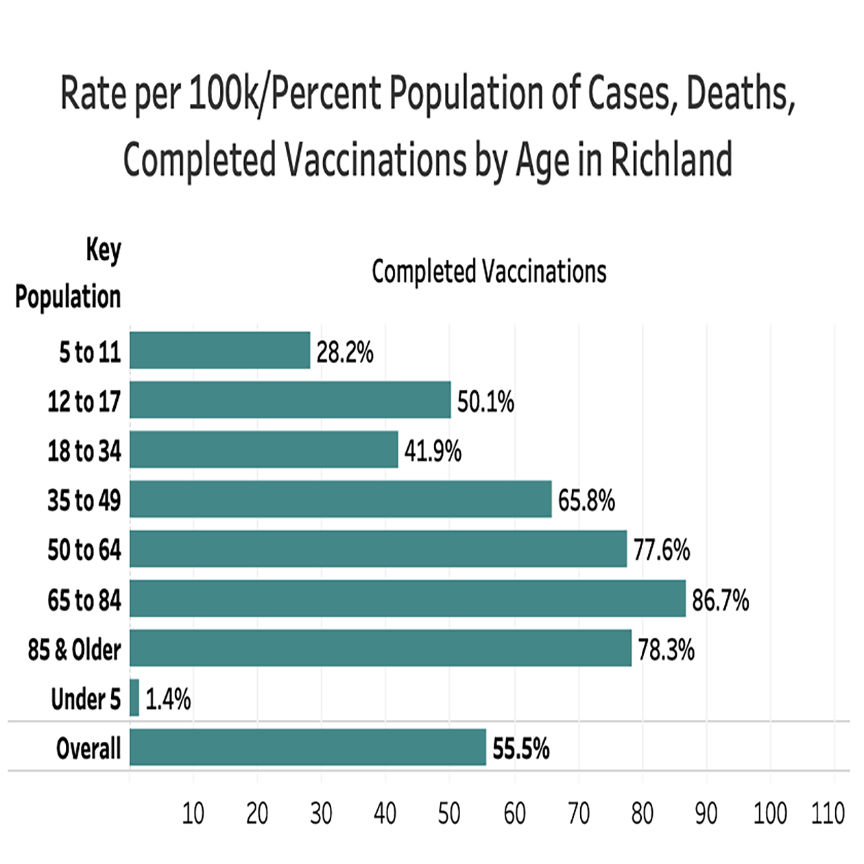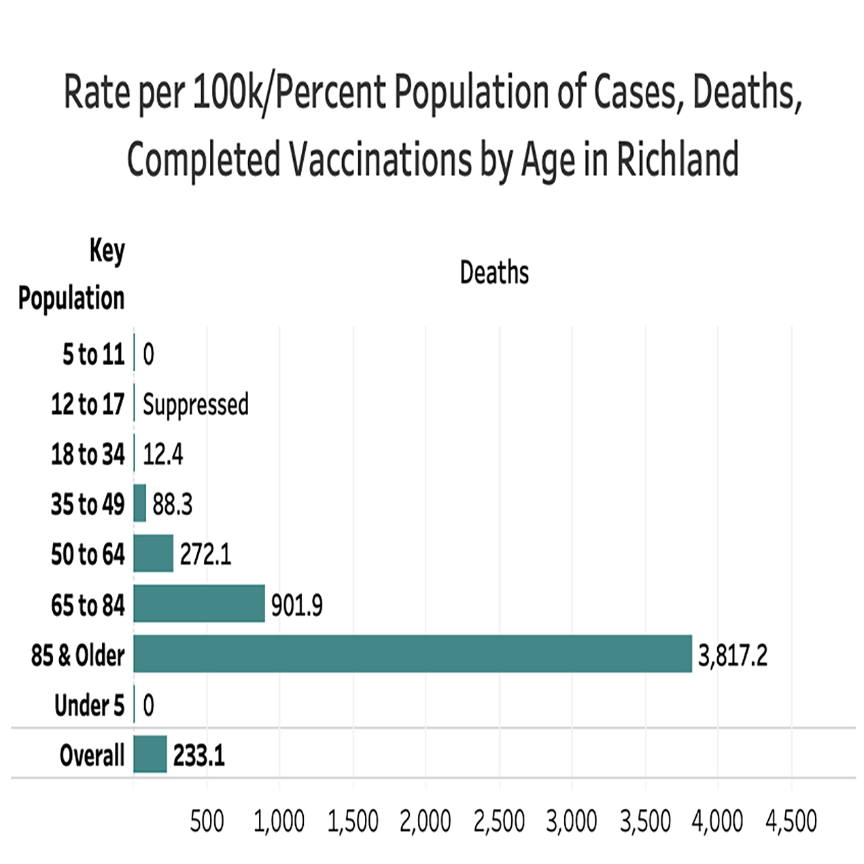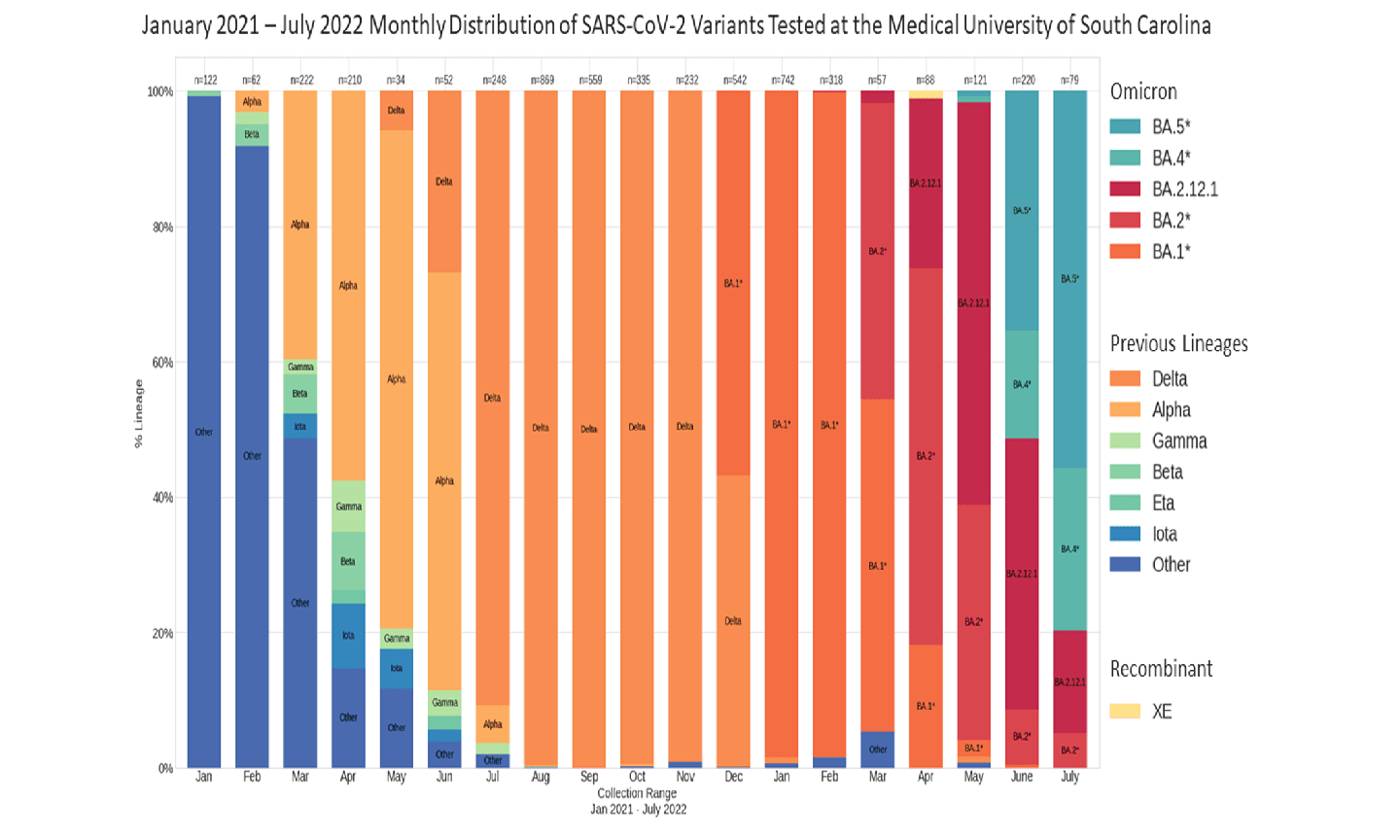A syringe lays next to a bottle of Moderna’s COVID-19 bivalent vaccine booster. (Photo by Sammy Sobich)
S.C. healthcare workers are bracing for a winter COVID-19 spike, coupled with high numbers of influenza and other respiratory cases that are expected to push hospital capacity to its limits.
The Mayo Clinic predicts that average COVID cases per day nationwide will increase by more than 10% in the coming weeks as colder temperatures force people to gather indoors.
“We’ll see an increase in COVID cases – probably not to the extent that we saw in the winter of 2020 and winter of 2021 – but we will see a rise,” said Matthew Binnicker, director of clinical virology at the Mayo Clinic.
Public health officials expect the COVID wave to hit around Thanksgiving. Flu season normally peaks in October, so the Centers for Disease Control and Prevention has clarified boosters and flu shots can be given together.
To combat the predicted COVID spike, the U.S. government has started rolling out more than 25 million updated bivalent booster shots, mostly from Pfizer-BioNTech and Moderna. Bivalent COVID booster shots are different. That’s because they include a component of the Omicron variant to provide better protection against the newer strain, according to the Food and Drug Administration.
The FDA has authorized the new formulations of the Moderna and Pfizer-BioNTech COVID vaccines for use at least two months after someone gets a primary or booster vaccination. The CDC approved those boosters after tests based on mice and some human trials showed they produced higher levels of antibodies than the original vaccines.
Although initial vaccination rates were high nationally, people haven’t responded the same way to the updated boosters.
The Kaiser Family Foundation, a health policy analysis organization, found that only about half of adults saying they’ve heard “a little” or “nothing at all” about the boosters.
Adults ages 65 and up as well as those at a higher risk for complications indicated they have gotten or would get a booster shot as soon as possible, according to the study.
Older adults, especially those in nursing homes, continue to experience statistically significant COVID morbidity and mortality rates, according to the CDC.
“Things are different, things are better, but it’s not over,” said Dr. Michael Sweat, a professor and director of the COVID-19 Epidemiology Intelligence Project at the Medical University of South Carolina.
Based on MUSC’s projections, Sweat says the state can expect to see a surge around the holidays and into the New Year.
“We are in a period of time with pretty low rates right now, but history is telling us it’s likely to see an increase in cases,” Sweat said.
The COVID Project at MUSC has been studying several new variants – some of higher concern than others. The most recent variations they are tracking is Omicron BA.5 and BA.4.
At a White House briefing in early September, Dr. Anthony Fauci said COVID vaccinations likely will become an annual affair, similar to flu shots.
“We are likely moving towards a path with a vaccination cadence similar to that of the annual influenza vaccine, with annual updated COVID shots matched to the currently circulating strains,” Fauci, the president’s chief medical advisor, said at the briefing.
The CDC and other health officials suggest people, especially nursing home residents, remain up to date with the recommended booster doses.
A bottle of Moderna’s COVID-19 vaccine sits in a cooler on an ice pack. (Photo by Sammy Sobich)
A comparison of Richland County age group vaccination rates. (Graphic by Sammy Sobich/S.C. Department of Health and Environmental Control)
A comparison of Richland County age group deaths. (Graphic by Sammy Sobich/S.C. Department of Health and Environmental Control)
COVID-19 variants studied in the MUSC Molecular Pathology Laboratory. (Photo courtesy of the COVID-19 Epidemiology Intelligence Project)






